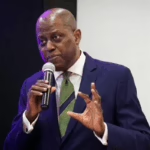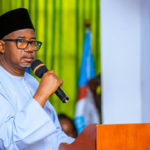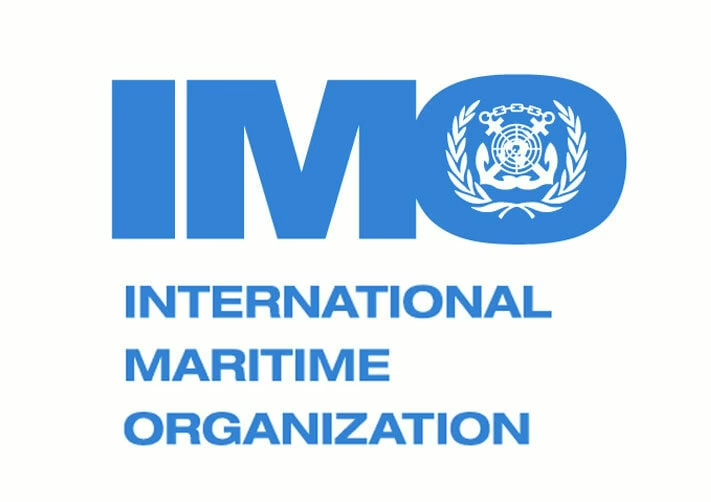Nigeria has intensified its bid for a seat on the International Maritime Organization (IMO) Council under Category C, marking a significant milestone in New York. The Honourable Minister of Marine and Blue Economy, Adegboyega Oyetola, took the opportunity to engage with Permanent Representatives of African countries to the United Nations during a reception hosted at Nigeria House.
Following the official launch of the campaign at the IMO Headquarters in London on June 18th, this New York gathering represents a crucial phase in Nigeria’s ongoing diplomatic efforts to garner widespread support ahead of the upcoming Council elections later this year.
In his address, Minister Oyetola conveyed a compelling vision for maritime development and national commitment. He expressed gratitude to the attending UN envoys and conveyed warm regards from President Bola Ahmed Tinubu, GCFR. Emphasizing that Nigeria’s candidacy transcends mere ambition, he framed it as a firm commitment to collaborate with the global maritime community.
Highlighting Nigeria’s vast maritime assets, Oyetola noted the country’s 853-kilometer coastline, an extensive network of over 10,000 kilometers of inland waterways, and a substantial Exclusive Economic Zone. He also underscored Nigeria’s strategic position along the Gulf of Guinea, a critical corridor for international trade. The Minister reaffirmed Nigeria’s dedication to the IMO’s fundamental goals of ensuring shipping that is safe, secure, environmentally sustainable, efficient, and resilient.
Oyetola spotlighted Nigeria’s proactive initiatives, particularly the transformative Deep Blue Project led by the Nigerian Maritime Administration and Safety Agency (NIMASA). This initiative integrates air, land, and maritime resources to bolster security across Nigeria’s waters. He proudly shared that Nigeria has maintained a three-year streak of zero piracy incidents within its maritime domain, contributing to a significant decline in piracy across the Gulf of Guinea. These successes have strengthened confidence among global shipping stakeholders and solidified Nigeria’s reputation as a guardian of maritime safety.
“Our region’s maritime security landscape has been revolutionized in recent years,” Oyetola stated. “The Deep Blue Project has established a comprehensive, multi-tiered security system that synchronizes aerial, terrestrial, and maritime assets under NIMASA’s leadership. The outcomes are clear: Nigeria has experienced no piracy incidents for three consecutive years, and the Gulf of Guinea has seen a marked reduction in such threats. This progress has restored trust among international shipping operators and affirmed Nigeria’s pivotal role in maritime security.”
He further emphasized Nigeria’s role as a vital trade hub, with its ports serving as essential gateways for commerce in West and Central Africa. Nigeria’s shipping sector ranks among the largest in sub-Saharan Africa. With renewed focus on the blue economy and ongoing institutional reforms, the country is positioning itself as a dominant maritime force regionally and a reliable partner on the global shipping stage.
The Minister also detailed Nigeria’s commitment to aligning with international maritime standards. The country has ratified and incorporated key IMO conventions into national law and is actively pursuing accession to additional agreements addressing critical issues such as greenhouse gas emissions, biofouling, and maritime labor rights. Nigeria prioritizes compliance with regulations governing emissions, pollution control, and sustainable port management to meet global environmental and operational benchmarks.
Oyetola reaffirmed Nigeria’s dedication to the United Nations Sustainable Development Goal 14, which focuses on the preservation and sustainable utilization of oceans, seas, and marine resources, as well as the Kunming-Montreal Global Biodiversity Framework.
“Nigeria has signed the Agreement on Biodiversity Beyond National Jurisdiction (BBNJ) and is in the process of ratifying it,” he explained. “Demonstrating leadership within West Africa, Nigeria has championed a regional initiative to develop a proposal for establishing a High Seas Marine Protected Area in the Convergence Zone of the Canary and Guinea Currents.”
He described Nigeria’s vision for an IMO that embodies inclusivity, representation, and forward-thinking governance. With a population exceeding 240 million-nearly 60% of whom are under 19 years old-Nigeria stands as a maritime leader in the region and a partner for future progress. The country is investing heavily in maritime education, capacity development, and skills transfer, while promoting gender equality by encouraging women’s participation as seafarers, port operators, and maritime executives. “True global advancement depends on equitable opportunities,” Oyetola affirmed.
According to the Minister, Nigeria’s campaign is rooted in mutual support and solidarity. The approach emphasizes building bilateral and multilateral partnerships, with Nigeria offering technical expertise and assistance to fellow developing nations, especially within Africa, Small Island Developing States, and Least Developed Countries.
Oyetola concluded by asserting that casting a vote for Nigeria represents endorsing responsible leadership, inclusiveness, and cooperative progress in maritime governance. He called on the envoys to back Nigeria’s candidacy as part of a collective effort to foster a maritime environment that is safer, greener, more resilient, and more inclusive-one that protects trade, conserves the environment, and uplifts communities.






















